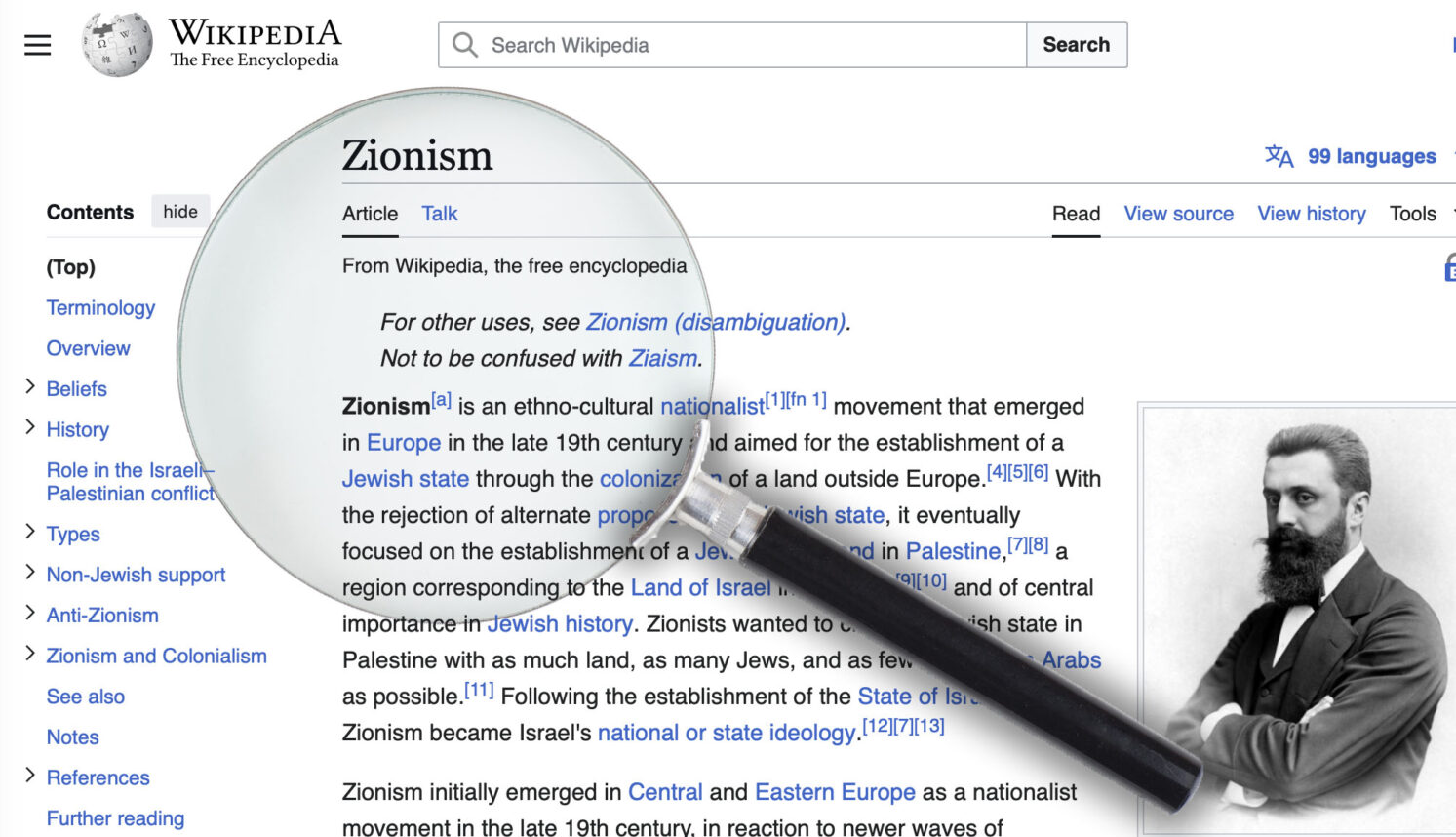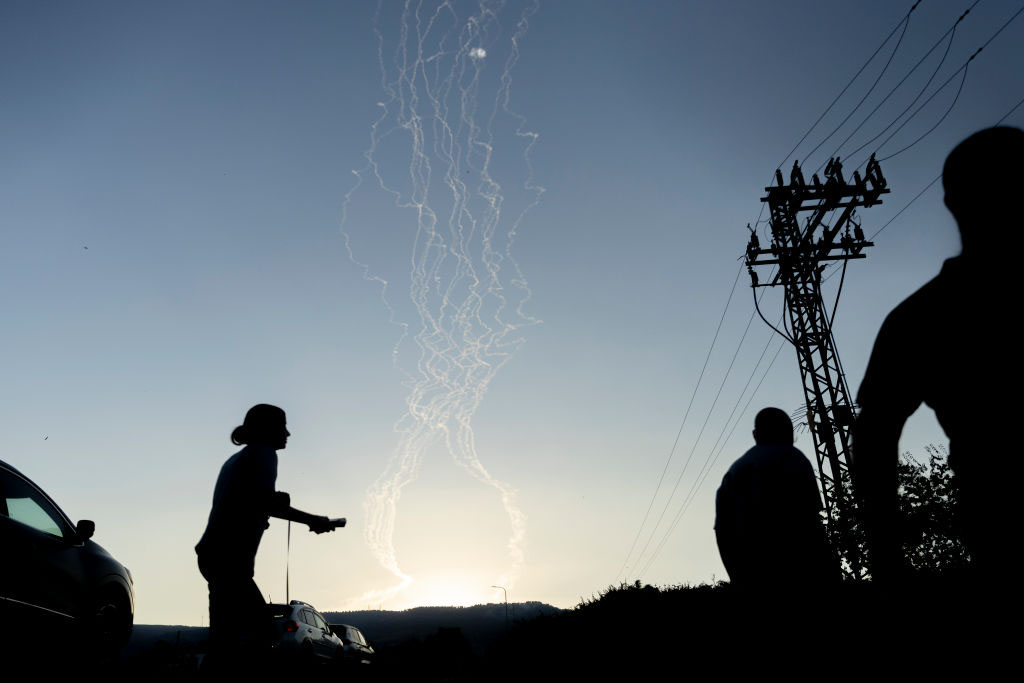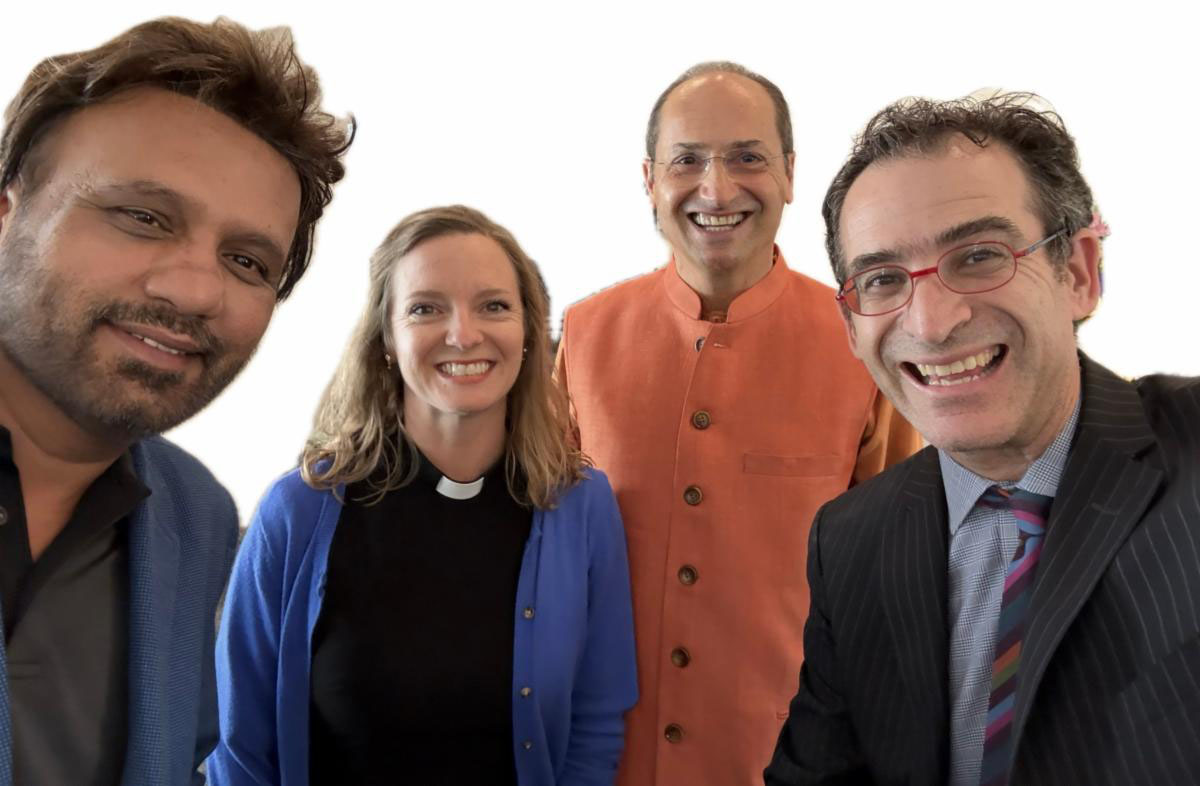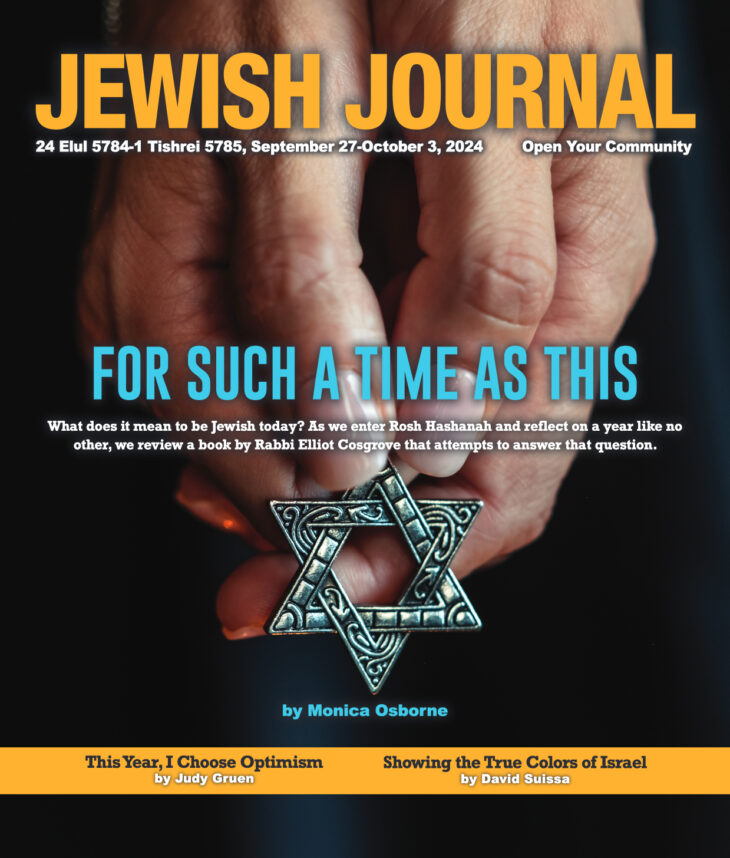 Abraham banishing Hagar and Ishmael. (Charles II Antique Stumpwork Embroidery, silk and chenille). Abraham’s face possibly faded or omitted for religious reasons. (Courtesy of Linda Hepner Trust)
Abraham banishing Hagar and Ishmael. (Charles II Antique Stumpwork Embroidery, silk and chenille). Abraham’s face possibly faded or omitted for religious reasons. (Courtesy of Linda Hepner Trust) Two bible stories tell of the near death of the two sons of Abraham,
Ishmael and Isaac, heroes of two complementary codes.
One son is by an angel saved, one spared by a substitute, a ram.
The words al odot, denoting “on account,” bilingually anticipate two “odes,”
the first of which highlights the patriarch’s distress concerning
the threat of death that, like the second, will by an angel be prevented,
informing us that God, His death-decision in both overturning,
provides a happy ending to both “odes,” implying that He never meant it.
There are two adjacent “odes” about the near-deaths of Abraham’s two sons, Ishmael and Isaac, in Genesis 21 and 22, which are read on consecutive days of Rosh Hashanah. In the first, we learn in Gen. 21:10-11:
י וַתֹּאמֶר, לְאַבְרָהָם, גָּרֵשׁ הָאָמָה הַזֹּאת, וְאֶת-בְּנָהּ: כִּי לֹא יִירַשׁ בֶּן-הָאָמָה הַזֹּאת, עִם-בְּנִי עִם-יִצְחָק. 10 Wherefore she said unto Abraham: ‘Cast out this bondwoman and her son; for the son of this bondwoman shall not be heir with my son, even with Isaac.’
יא וַיֵּרַע הַדָּבָר מְאֹד, בְּעֵינֵי אַבְרָהָם, עַל אוֹדֹת בְּנוֹ. 11 And the thing was very grievous in Abraham’s sight. al odot beno, on account of his son.
I read the words עַל אוֹדֹת בְּנוֹ al odot beno, as a bilingual wordplay, implying that the stories of the near-deaths of Abraham’s sons should be regarded as “odes”.
The happy ending of the second “ode”, mediated by an angel and a ram, is reflected in Gen. 22:11-13:
יא וַיִּקְרָא אֵלָיו מַלְאַךְ יְהוָה, מִן-הַשָּׁמַיִם, וַיֹּאמֶר, אַבְרָהָם אַבְרָהָם; וַיֹּאמֶר, הִנֵּנִי. 11 And the angel of the LORD called unto him out of heaven, and said: ‘Abraham, Abraham.’ And he said: ‘Here am I.’
יב וַיֹּאמֶר, אַל-תִּשְׁלַח יָדְךָ אֶל-הַנַּעַר, וְאַל-תַּעַשׂ לוֹ, מְאוּמָה: כִּי עַתָּה יָדַעְתִּי, כִּי-יְרֵא אֱלֹהִים אַתָּה, וְלֹא חָשַׂכְתָּ אֶת-בִּנְךָ אֶת-יְחִידְךָ, מִמֶּנִּי. 12 And he said: ‘Lay not thy hand upon the lad, neither do thou any thing unto him; for now I know that thou art a God-fearing man, seeing thou hast not withheld thy son, thine only son, from Me.’
יג וַיִּשָּׂא אַבְרָהָם אֶת-עֵינָיו, וַיַּרְא וְהִנֵּה-אַיִל, אַחַר, נֶאֱחַז בַּסְּבַךְ בְּקַרְנָיו; וַיֵּלֶךְ אַבְרָהָם וַיִּקַּח אֶת-הָאַיִל, וַיַּעֲלֵהוּ לְעֹלָה תַּחַת בְּנוֹ. 13 And Abraham lifted up his eyes, and looked, and behold behind him a ram caught in the thicket by his horns. And Abraham went and took the ram, and offered him up for a burnt-offering in the stead of his son.
Gershon Hepner is a poet who has written over 25,000 poems on subjects ranging from music to literature, politics to Torah. He grew up in England and moved to Los Angeles in 1976. Using his varied interests and experiences, he has authored dozens of papers in medical and academic journals, and authored “Legal Friction: Law, Narrative, and Identity Politics in Biblical Israel.” He can be reached at gershonhepner@gmail.com.























 More news and opinions than at a Shabbat dinner, right in your inbox.
More news and opinions than at a Shabbat dinner, right in your inbox.